Acne is more than a mere inconvenience; it's a complex condition that affects millions worldwide, casting a shadow on their confidence and self-image. Our comprehensive guide, “10 Fast-Acting Acne Remedies for a Clearer Tomorrow,” is crafted to shed light on this pervasive issue, offering solace and solutions to those in search of relief.
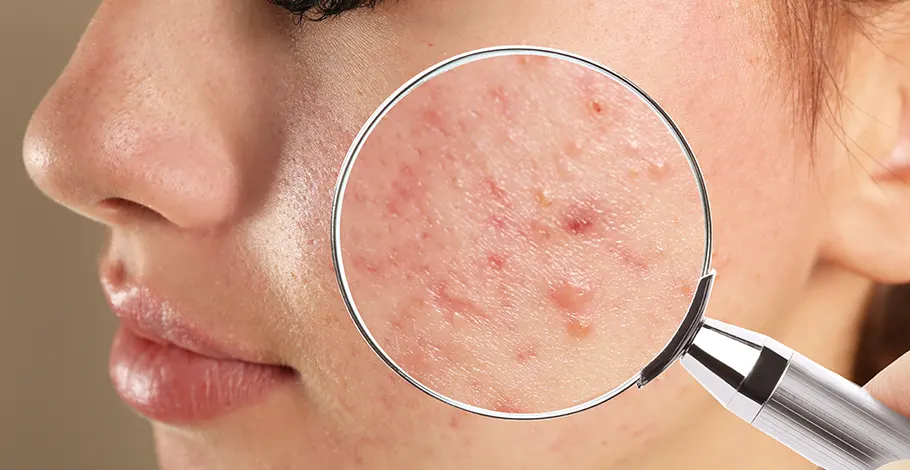
Delving deep into both tried-and-true and cutting-edge treatments, our aim is to equip you with the knowledge and tools necessary to combat acne effectively, ensuring a path towards radiant, healthy skin. This article is meticulously designed to serve as your beacon of hope and a source of scientifically supported, safe acne remedies that promise swift action for a clearer future. Here's what to expect:
- Evidence-Based Treatments
- Holistic Healing Approaches
- Personalized Solutions
- Professional Insights
- Innovative Breakthroughs
- Lifestyle Adjustments
Understanding Acne:
Acne occurs when hair follicles become clogged with oil and dead skin cells, leading to inflammation and the formation of pimples. [1]
Various factors such as hormonal changes, genetics, and environmental influences can contribute to its development. Different types of acne, including whiteheads, blackheads, papules, pustules, nodules, and cysts, require specific treatment approaches to achieve optimal results.
10 Effective Acne Solutions for Clear Skin
1. Salicylic Acid Treatments:
Salicylic acid is a beta hydroxy acid known for its ability to penetrate the pores and dissolve excess oil and dead skin cells. This helps prevent clogged pores and reduces inflammation. Recommended products include cleansers, toners, and spot treatments containing 2% salicylic acid. Apply a thin layer of the product to affected areas once or twice daily for best results. Research published in the Journal of the American Academy of Dermatology has shown that the use of a cleanser infused with 2% salicylic acid can effectively enhance the condition of acne vulgaris. [2]
2. Benzoyl Peroxide Solutions:
Benzoyl peroxide is an antimicrobial agent that effectively kills acne-causing bacteria and reduces excess oil production. When using benzoyl peroxide, start with a lower concentration (2.5% to 5%) to minimize irritation. Apply a thin layer to clean, dry skin once or twice daily, gradually increasing frequency as tolerated. Be cautious as benzoyl peroxide may bleach clothing and towels.
3. Tea Tree Oil:
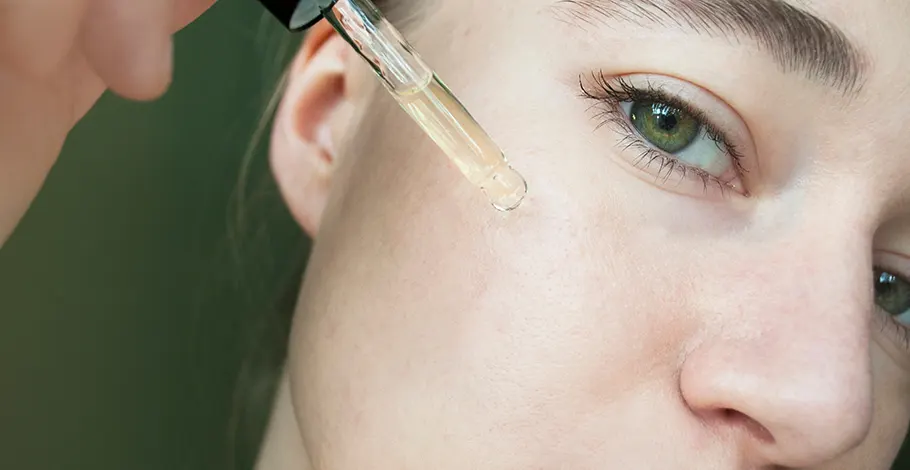
Can Tea Tree Oil Help Get Rid of Acne? Shutterstock Image
Tea tree oil possesses antimicrobial and anti-inflammatory properties, making it a popular natural remedy for acne. Dilute tea tree oil with a carrier oil like jojoba or coconut oil to prevent skin irritation. Apply a small amount to affected areas using a cotton swab or pad. Incorporate tea tree oil into your skincare routine by using it as a spot treatment or adding a few drops to your moisturizer.
4. Alpha Hydroxy Acids (AHAs):
AHAs, such as glycolic acid and lactic acid, exfoliate the skin's surface, unclog pores, and promote cell turnover, leading to smoother, clearer skin. Look for AHAs in serums, creams, or peels with concentrations ranging from 5% to 10%. Start with a lower concentration to avoid irritation, and gradually increase usage frequency as tolerated. [3]
5. Sulfur-Based Skincare Products:
Sulfur has antimicrobial and anti-inflammatory properties that help reduce acne-causing bacteria and inflammation. Sulfur-based products, such as masks, cleansers, and spot treatments, can be beneficial for treating acne. Use sulfur products as directed, typically applying a thin layer to clean skin and leaving it on for a specified duration before rinsing off.
6. Retinoids:
Retinoids, derivatives of vitamin A, regulate cell turnover, prevent clogged pores, and reduce inflammation, making them effective for treating acne. A recent study highlights the role of retinoids as active compounds that influence the formation of skin structure in both cosmetic and dermatological treatments. These products are available in various forms, including prescription creams, gels, and over-the-counter serums. Start with a low concentration and gradually increase usage to minimize side effects like dryness and irritation. [4]
7. DIY Masks and Home Remedies:
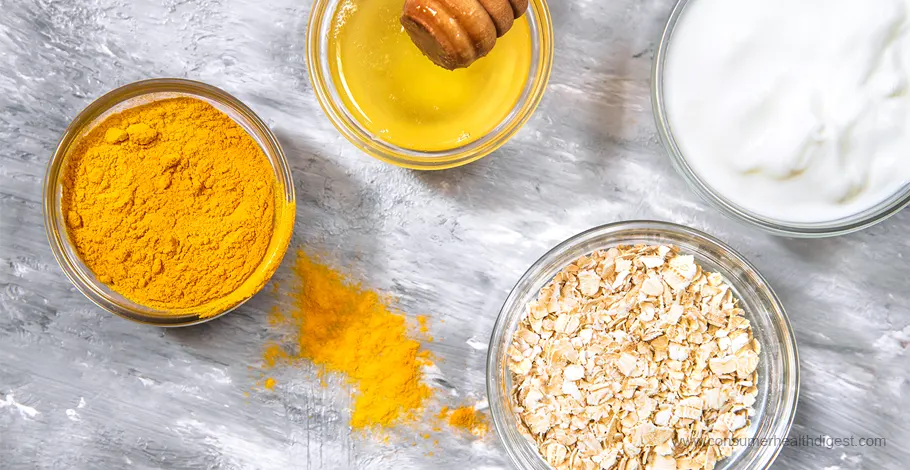
Natural Face Mask With Turmeric Powder, Honey, Oatmeal and Yogurt. Shutterstock Image
Several home remedies can complement your acne treatment routine. Ingredients like honey, yogurt, oatmeal, and turmeric possess antibacterial and soothing properties that can help alleviate acne symptoms. Create homemade masks by mixing these ingredients with water or aloe vera gel and apply them to clean skin for 10-15 minutes before rinsing off.
8. Zinc Supplements:
Zinc is an essential mineral that plays a role in immune function and wound healing, making it beneficial for acne treatment. Zinc supplements may help reduce inflammation and regulate sebum production when taken orally. Consult with a healthcare professional to determine the appropriate dosage and duration of supplementation for your individual needs. [5]
9. Green Tea Extract:
Green tea extract (GTE) has been investigated for its potential in treating acne due to its anti-inflammatory and antioxidant properties.Drink green tea regularly or look for skincare products containing green tea extract to reap its benefits. Green tea toners or moisturizers can be applied topically to soothe irritation and reduce redness associated with acne. [6]
10. Lifestyle Changes for Acne Prevention:
In addition to topical treatments, certain lifestyle modifications can contribute to clearer skin.
- Maintain a balanced diet rich in fruits, vegetables, and whole grains while limiting processed foods and sugary snacks.
- Manage stress through relaxation techniques such as yoga, meditation, or deep breathing exercises.
- Practice good hygiene habits by regularly cleansing your face, avoiding touching your skin, and using non-comedogenic skincare products.
Professional Treatments for Stubborn Acne:
For severe or persistent acne, consider seeking professional treatment from a dermatologist. Options may include prescription medications like oral antibiotics, hormonal therapies, or isotretinoin (Accutane). Dermatologists can also perform procedures such as chemical peels, microdermabrasion, or laser therapy to target stubborn acne and acne scars.
Conclusion
In conclusion, fast-acting acne remedies can help you achieve clearer skin and boost your confidence. By incorporating scientifically backed treatments like salicylic acid, benzoyl peroxide, tea tree oil, AHAs, sulfur, retinoids, DIY masks, lifestyle changes, and additional remedies such as zinc supplements and green tea extract, you can effectively manage acne and prevent future breakouts.
Remember to consult with a healthcare professional or dermatologist to develop a personalized acne treatment plan tailored to your skin type and concerns. Embrace a comprehensive approach to acne management for a brighter, clearer tomorrow.
Incorporating these acne remedies into your daily skincare routine can lead to noticeable improvements in your complexion. Whether you're dealing with occasional breakouts or persistent acne, taking proactive steps to address the root causes can help you achieve the clear, radiant skin you desire. Don't let acne hold you back – start implementing these remedies today for a brighter, clearer tomorrow!
6 Sources
We review published medical research in respected scientific journals to arrive at our conclusions about a product or health topic. This ensures the highest standard of scientific accuracy.
[2] "A double-blind, placebo-controlled evaluation of a 2% salicylic acid cleanser for improvement of acne vulgaris." J. Am. Acad. Dermatol., vol. 68, no. 4, 1 Apr. 2013, p. AB12, doi:10.1016/j.jaad.2012.12.052.
[3] Karwal, Kanwarpreet and Ilya Mukovozov. "Topical AHA in Dermatology: Formulations, Mechanisms of Action, Efficacy, and Future Perspectives." Cosmetics, vol. 10, no. 5, 19 Sept. 2023, p. 131, doi:10.3390/cosmetics10050131.
[4] Zasada M, Budzisz E. Retinoids: active molecules influencing skin structure formation in cosmetic and dermatological treatments. Postepy Dermatol Alergol. 2019 Aug;36(4):392-397. doi: 10.5114/ada.2019.87443. Epub 2019 Aug 30. PMID: 31616211; PMCID: PMC6791161.
[5] Brandt S. The clinical effects of zinc as a topical or oral agent on the clinical response and pathophysiologic mechanisms of acne: a systematic review of the literature. J Drugs Dermatol. 2013 May;12(5):542-5. PMID: 23652948.
[6] Kim S, Park TH, Kim WI, Park S, Kim JH, Cho MK. The effects of green tea on acne vulgaris: A systematic review and meta-analysis of randomized clinical trials. Phytother Res. 2021 Jan;35(1):374-383. doi: 10.1002/ptr.6809. Epub 2020 Aug 19. PMID: 32812270.


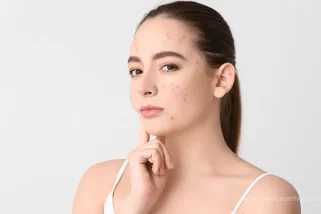
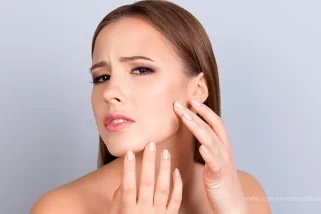
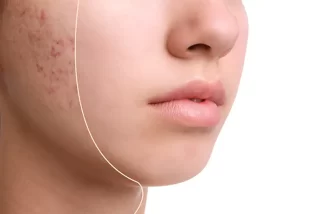
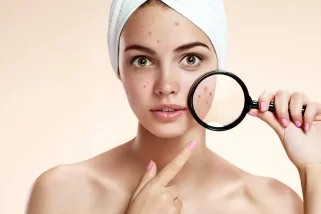

 This article changed my life!
This article changed my life! This article was informative.
This article was informative. I have a medical question.
I have a medical question.
 This article contains incorrect information.
This article contains incorrect information. This article doesn’t have the information I’m looking for.
This article doesn’t have the information I’m looking for.